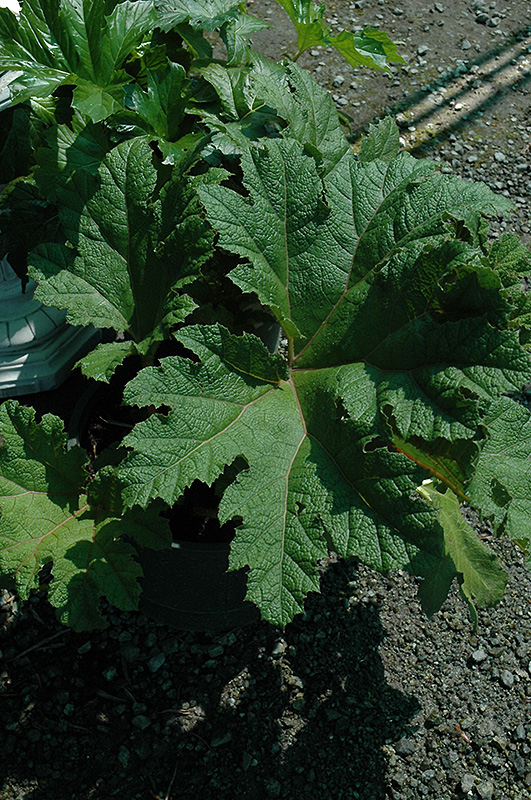Plant Finder
Height: 10 feet
Spread: 10 feet
Sunlight:
![]()
![]()
Hardiness Zone: 7b
Other Names: Brazilian Gunnera
Description:
A gorgeous specimen plant for a large garden area; massive leaves on stalks rise up to 10 feet and unfurl up to 6 feet wide; it loves moist to wet enviroments so it is great alongside a pond; can be invasive in moist warmer climates;
Ornamental Features
Giant Rhubarb's attractive enormous serrated lobed palmate leaves remain green in color throughout the year on a plant with an upright spreading habit of growth.
Landscape Attributes
Giant Rhubarb is an herbaceous evergreen perennial with an upright spreading habit of growth. Its wonderfully bold, coarse texture can be very effective in a balanced garden composition.
This plant will require occasional maintenance and upkeep, and is best cleaned up in early spring before it resumes active growth for the season. Gardeners should be aware of the following characteristic(s) that may warrant special consideration;
- Invasive
- Self-Seeding
Giant Rhubarb is recommended for the following landscape applications;
- Accent
- Mass Planting
- General Garden Use
Planting & Growing
Giant Rhubarb will grow to be about 10 feet tall at maturity, with a spread of 10 feet. It has a low canopy with a typical clearance of 2 feet from the ground. It grows at a medium rate, and under ideal conditions can be expected to live for approximately 8 years. As an evegreen perennial, this plant will typically keep its form and foliage year-round.
This plant does best in full sun to partial shade. It prefers to grow in moist to wet soil, and will even tolerate some standing water. It is not particular as to soil pH, but grows best in rich soils. It is highly tolerant of urban pollution and will even thrive in inner city environments. Consider applying a thick mulch around the root zone in winter to protect it in exposed locations or colder microclimates. This species is not originally from North America.




